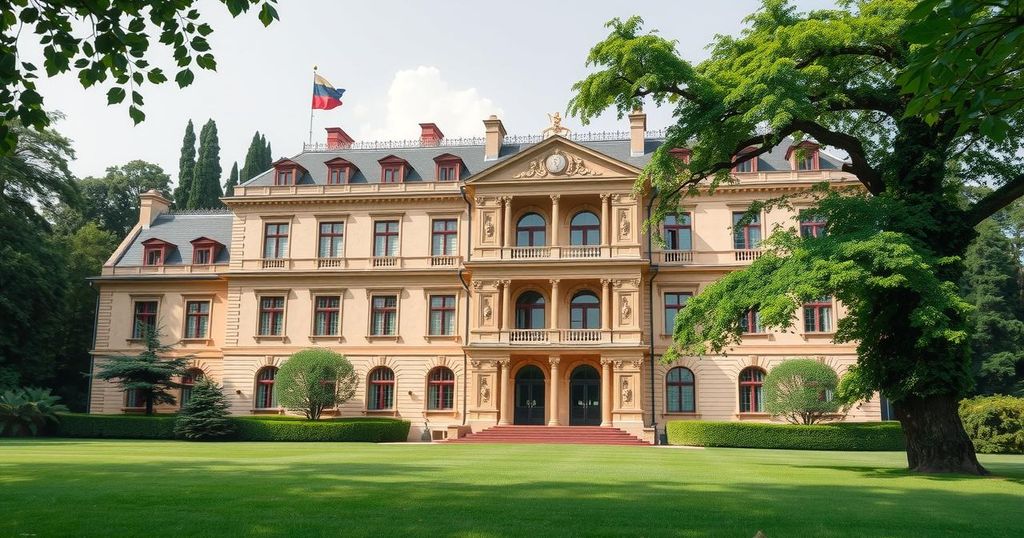Germany Reopens Its Diplomatic Mission in Syria After 13 Years

Germany has reopened its embassy in Syria after 13 years, committing to support the nation politically and economically. The embassy will initially have a small workforce, with some services remaining in Beirut. Minister Baerbock emphasized the need for reconstruction and an inclusive political process involving all societal segments. Germany pledged 300 million euros for humanitarian aid during a donor conference in Brussels.
Germany has officially reopened its diplomatic mission in Syria after a closure lasting 13 years. This reopening was confirmed by Minister Annalena Baerbock and German special envoy to Syria, Stefan Schneck, who expressed a commitment to collaborate with Syrian citizens to facilitate a better nation. The embassy workforce remains minimal, with visa and consular services still being coordinated from Beirut temporarily.
In light of the severe crackdown against pro-democracy protests in 2011 led by the former government, many nations abandoned their diplomatic posts in Syria. Bashar al-Assad, who has governed Syria for nearly 25 years, fled to Russia after armed factions gained control of the capital in December. Subsequently, Ahmed al-Sharaa, who spearheaded the anti-government forces, was designated as president for a transitional phase in January.
On the same day of the embassy’s reopening, al-Sharaa held discussions with Minister Baerbock and European Parliament member Armin Laschet in Damascus. However, the presidency’s statement regarding this meeting did not disclose specific details, occurring shortly after Germany’s embassy announcement. This visit by Minister Baerbock marked her second trip to Syria following the Assad government’s fall in December, with her first visit taking place in January.
Following the embassy reopening, Minister Baerbock emphasized Germany’s commitment to supporting Syria both politically and economically, underscoring the urgent need for assistance and reconstruction efforts for the Syrian populace. She reiterated solidarity with the Syrians’ peace initiatives, asserting that the process of unification should engage all societal segments, with an inclusive approach towards various ethnic and religious groups before facilitating the return of refugees.
Additionally, during a recent donor conference in Brussels, Germany announced a contribution of 300 million euros to enhance Syria’s economic stability. Forum attendees collectively pledged 5.8 billion euros to assist the Syrian population and host countries accommodating refugees.
The reopening of Germany’s embassy in Syria marks a significant diplomatic shift following years of closure due to the civil unrest and subsequent governmental actions in the country. By pledging financial assistance and emphasizing an inclusive political process, Germany aims to support the reconstruction and unification of Syria, highlighting a renewed commitment to assisting the Syrian people amidst ongoing challenges. The emphasis on collaboration with various societal groups signals a move towards fostering a more stable and peaceful Syria.
Original Source: ifpnews.com








